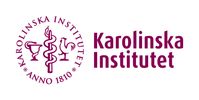Screening for atrial fibrillation could reduce risk of stroke
Screening for atrial fibrillation in 75- and 76-year-olds could reduce the risk of stroke, severe bleeding and death, according to a study at Karolinska Institutet in Sweden that has been published in the journal The Lancet.

Atrial fibrillation, a form of arrhythmia or irregular heartbeat, is associated with a five-fold increased risk of stroke. The symptoms are often deleterious since large blood clots can form in the heart, break free and risk clogging large vessels in the brain and cause stroke. Anticoagulant therapy reduces the risk of stroke. Still, countries do not screen the general population for atrial fibrillation, but rather treat those patients who are discovered during routine care.
”There has never really been a study that examines if it would be beneficial to screen for atrial fibrillation, which is why we wanted to investigate it,” says Emma Svennberg, cardiologist at the Karolinska University Hospital, Huddinge, and researcher at the Department of Medicine, Huddinge, Karolinska Institutet.
Screening with thumb ECG
The study included all 75- and 76-year-olds, almost 28,000 in total, in the two Swedish regions of Halland and Stockholm. The participants were randomized to be invited either to screening (13,979 people) or to a control group (13,996 people), who received standard care. Of those who were invited to screening, more than half choose to participate. They completed a health questionnaire and performed a so-called thumb ECG (electrocardiogram), which involves placing one's thumbs on an ECG device that measures the heart's electrical activity.
Those without atrial fibrillation got to take home the ECG device and were asked to record their heart rhythm twice daily for two weeks. If the device registered irregular heart rhythms, the participants were referred to a cardiologist for a standardized work-up and, if there were no contra-indications, initiation of oral anticoagulant therapy.
Reduced risk of stroke, bleeding and death
All 28,000 individuals were then followed for at least five years. The detection of atrial fibrillation was higher in the screening group, and the screening group also had a slightly lower incidence of death, stroke and severe bleeding than the control group.
”In total, 31.9 percent of those in the screening group experienced a negative event compared to 33 percent in the control group,” says Johan Engdahl, adjunct lecturer at the Department of Clinical Sciences, Danderyds Hospital, at Karolinska Institutet. ”Now, that may sound like a small difference, but you must bear in mind that only about half of those invited to screening participated and it's possible we would have seen a more pronounced difference had more people turned up for screening. Those who participated in the screening had significantly fewer negative events.”
According to the researchers, the findings indicate that at least 2,300 cases of stroke or death could be avoided per year in Sweden if a national screening of atrial fibrillation in the elderly was introduced.
Cost-effective
The researchers have also conducted a financial analysis, presented at the European Society of Cardiology congress this weekend, which shows that the screening is cost-effective.
”The results mean that decision-makers will be in a better position about deciding whether to move forward with recommending screening for atrial fibrillation in Sweden as well as internationally,” Emma Svennberg says. ”In future studies, we need to examine what it looks like in other health care settings in other countries and in different ethnical groups, and also if other age groups could benefit from screening.”
The study has been financed by Stockholm County Council, the Swedish Heart & Lung Foundation, King Gustav V and Queen Victoria's Freemasons' Foundation, the Klebergska Foundation, the Tornspiran Foundation, the Scientific Council of Halland Region, the Southern Regional Healthcare Committee, the Swedish Stroke Fund, Carl Bennet AB, Boehringer-Ingelheim, Bayer, and BMS-Pfizer. No conflicts of interest have been reported.
Publication: ”Benefits of systematic screening for Atrial Fibrillation - findings from the randomised controlled STROKESTOP-study”, Emma Svennberg, Leif Friberg, Viveka Frykman, Faris Al-Khalili, Johan Engdahl, Mårten Rosenqvist, The Lancet, online Aug. 29, 2021, doi: 10.1016/S0140-6736(21)01637-8
For more information, please contact: Emma Svennberg, researcher and MD Department of Medicine, Huddinge, Karolinska Institutet Phone: +46 73-958 48 22 Email: emma.svennberg@sll.se
Johan Engdahl, adjunct lecturer and MD Department of Clinical Sciences, Danderyds Hospital, Karolinska Institutet Phone: +46 73-759 33 74 Email: johan.engdahl@sll.se
Contacts
Contact the Press Office and download photo: ki.se/pressroom
Images

Karolinska Institutet (https://ki.se/en) is one of the world’s leading medical universities. Our vision is to advance knowledge about life and strive towards better health for all. Karolinska Institutet accounts for the single largest share of all academic medical research conducted in Sweden and offers the country’s broadest range of education in medicine and health sciences. The Nobel Assembly at Karolinska Institutet selects the Nobel laureates in Physiology or Medicine.
Subscribe to releases from Karolinska Institutet - English
Subscribe to all the latest releases from Karolinska Institutet - English by registering your e-mail address below. You can unsubscribe at any time.
Latest releases from Karolinska Institutet - English
New method reveals how the brain and inner ear are formed3.4.2025 20:00:00 CEST | Pressmeddelande
Researchers at Karolinska Institutet have developed a method that shows how the nervous system and sensory organs are formed in an embryo. By labelling stem cells with a genetic ‘barcode’, they have been able to follow the cells’ developmental journey and discover how the inner ear is formed in mice. The discovery, published in Science, could provide important insights for future treatment of hearing loss.
Fluoride in drinking water is associated with impaired childhood cognition7.3.2025 15:30:00 CET | Pressmeddelande
Elevated concentrations of fluoride can occur in well water, and in some countries, it is added to drinking water to counteract caries in the population. A study from Karolinska Institutet in Sweden now supports a few previous studies indicating that exposure to fluoride during the fetal stage or early childhood may impair cognition in children. The study is published in the journal Environmental Health Perspectives.
Children with ARFID face increased risk of disease17.2.2025 17:00:00 CET | Pressmeddelande
Children with avoidant restrictive food intake disorder (ARFID) have an elevated risk of developing psychiatric and physical conditions, a new study from Karolinska Institutet published in JAMA Pediatrics reports. The study highlights the importance of early identification to improve care of these children.
Preterm babies receive insufficient pain management27.1.2025 15:29:17 CET | Pressmeddelande
A large proportion of babies born very early need intensive care, which can be painful. But the healthcare system fails to provide pain relief to the full extent. This is shown by the largest survey to date of pain in neonatal care, now published in the journal Pain.
New study paves way for immunotherapies tailored for childhood cancers20.1.2025 17:00:00 CET | Pressmeddelande
Researchers at Karolinska Institutet and the Astrid Lindgren Children’s Hospital in Sweden have determined how children’s immune systems react to different kinds of cancer depending on their age. The study, which is published in the journal Cell, reveals significant differences between the immune response of children and adults, and has the potential to lead to new tailored treatments for children with cancer.
In our pressroom you can read all our latest releases, find our press contacts, images, documents and other relevant information about us.
Visit our pressroom